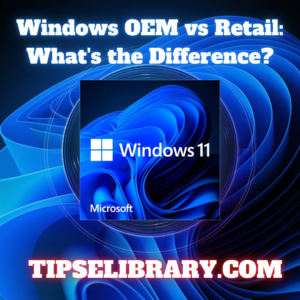Understanding the importance of VPNs: Essential for Online Privacy and Security
In today’s digital age, where almost everything is connected to the internet, ensuring your online security and privacy has become paramount. With cyber threats and data breaches on the rise, it is crucial to take proactive measures to safeguard your sensitive information. One effective tool that can help you achieve this is a Virtual Private Network (VPN). A VPN creates a secure and encrypted connection between your device and the internet, providing an additional layer of protection. In this article, we will explore the importance of VPNs and how they can safeguard your online security and privacy.
Understanding Online Security and Privacy Risks
Before diving into the world of VPNs, it’s important to understand the risks associated with your online activities. When you browse the internet or connect to public Wi-Fi networks, your data is vulnerable to interception by malicious individuals or organizations. Hackers can exploit security vulnerabilities to gain access to your personal information, such as login credentials, credit card details, or even your browsing history. Moreover, your Internet Service Provider (ISP) or government agencies can monitor your online activities, compromising your privacy. These risks highlight the need for a reliable solution that can protect your data and preserve your anonymity.
How VPNs Work
A VPN works by establishing a secure connection, often referred to as a tunnel, between your device and a remote server operated by the VPN provider. When you connect to the internet through a VPN, all your data is encrypted, making it unreadable to anyone attempting to intercept it. Additionally, the VPN masks your IP address, replacing it with the IP address of the server you are connected to. This helps to maintain your anonymity and prevents websites or online services from tracking your real location. By routing your internet traffic through the VPN server, a VPN effectively shields your online activities from prying eyes and potential threats.
Benefits of Using a VPN
Using a VPN offers a multitude of benefits when it comes to safeguarding your online security and privacy. Firstly, a VPN encrypts your internet traffic, ensuring that even if it is intercepted, it remains secure and unreadable. This is particularly important when connecting to public Wi-Fi networks, which are often unsecured and susceptible to attacks. With a VPN, you can confidently browse the internet, knowing that your sensitive information is protected.
Secondly, a VPN allows you to bypass geographical restrictions and access content that may be blocked in your region. By connecting to a server in a different country, you can appear as if you are browsing from that location. This is useful for accessing streaming services, websites, or online services that may be restricted in your country.
Furthermore, a VPN protects your privacy by masking your IP address and preventing websites from tracking your online activities. This means that your browsing history remains private, and you have greater control over your digital footprint. Additionally, some VPN providers offer features such as ad-blocking and malware protection, further enhancing your online security.
Types of VPN Protocols
VPN protocols are the set of rules that govern how data is transmitted between your device and the VPN server. There are several types of VPN protocols, each with its own advantages and considerations. The most commonly used protocols are:
- OpenVPN: OpenVPN is an open-source protocol known for its strong security and versatility. It is highly configurable and supports a wide range of encryption algorithms, making it a popular choice for VPN providers and users alike.
- IPSec: Internet Protocol Security (IPSec) is a suite of protocols that provides secure communication over IP networks. It offers strong encryption and authentication, ensuring the confidentiality and integrity of your data. IPSec can be used in conjunction with other protocols, such as L2TP (Layer 2 Tunneling Protocol), to create a secure VPN connection.
- PPTP: Point-to-Point Tunneling Protocol (PPTP) is one of the oldest and most widely supported VPN protocols. It is easy to set up and offers fast connection speeds. However, PPTP has known security vulnerabilities and is not recommended for sensitive data transmission.
- L2TP: Layer 2 Tunneling Protocol (L2TP) is often used in combination with IPSec to create a secure VPN connection. L2TP does not provide encryption on its own but relies on IPSec for data confidentiality and integrity.
When choosing a VPN provider, it’s important to consider the protocols they support and the level of security they offer. OpenVPN and IPSec are generally considered to be the most secure protocols, while PPTP should be avoided due to its vulnerabilities.
Factors to Consider When Choosing a VPN Provider
Selecting the right VPN provider is crucial to ensure the effectiveness and reliability of your VPN service. Here are some key factors to consider when choosing a VPN provider:
- Security: Look for a provider that uses strong encryption and follows strict security protocols. Ideally, they should employ advanced security features such as a kill switch, which automatically disconnects your internet if the VPN connection drops.
- Server Network: A wide network of servers in various locations allows you to choose the most suitable server for your needs. This is particularly important if you want to bypass geographical restrictions or access content from specific regions.
- Logging Policy: Check the provider’s logging policy to ensure they do not store or monitor your online activities. A strict no-logs policy means that your data remains private and cannot be accessed or shared with third parties.
- Speed and Performance: VPNs can potentially slow down your internet connection due to the encryption and routing processes. Look for a provider that offers fast and reliable connections to ensure smooth and uninterrupted browsing.
- User-Friendly Interface: A user-friendly interface and intuitive setup process make it easier for beginners to use and configure their VPN. Look for providers that offer user-friendly apps for various devices and operating systems.
By carefully considering these factors, you can find a VPN provider that aligns with your security and privacy requirements.
Setting Up and Configuring a VPN
Setting up and configuring a VPN is typically a straightforward process, thanks to user-friendly apps provided by VPN providers. Here are the general steps to set up a VPN:
Choose a VPN Provider: Research and select a reputable VPN provider that meets your requirements.
Sign Up and Subscribe: Choose a subscription plan and sign up for an account with the VPN provider. This usually involves providing your email address and creating a password.
Download and Install the VPN App: Visit the VPN provider’s website and download the appropriate app for your device and operating system. Install the app following the provided instructions.
Launch the App and Log In: Open the app and log in using your account credentials.
Select a Server: Choose a server location based on your needs, such as bypassing geographical restrictions or optimizing connection speed.
Connect to the VPN: Click the connect button or toggle switch to establish a secure VPN connection. Once connected, your internet traffic will be encrypted and routed through the VPN server.
Configure Additional Settings: Depending on your preferences and the VPN provider’s features, you can customize additional settings, such as enabling a kill switch or selecting specific encryption protocols.
Following these steps, you can quickly set up and configure a VPN to enhance your online security and privacy.
Using a VPN for Different Online Activities
A VPN can be used for various online activities to enhance your security and privacy. Here are some common scenarios where a VPN can be beneficial:
Secure Browsing: Whether you are accessing sensitive information, making online purchases, or simply browsing the web, using a VPN ensures that your data remains secure and protected from potential threats.
Torrenting and P2P Sharing: If you engage in torrenting or peer-to-peer (P2P) file sharing, a VPN can help protect your identity and prevent copyright infringement notices. By masking your IP address, a VPN allows you to download and share files anonymously.
Streaming and Geo-blocked Content: Streaming services often restrict access to certain content based on your geographical location. By connecting to a VPN server in a different country, you can bypass these restrictions and access a wider range of content.
Public Wi-Fi Security: Public Wi-Fi networks, such as those found in cafes, airports, or hotels, are notorious for their lack of security. Using a VPN on public Wi-Fi encrypts your data, preventing hackers from intercepting your sensitive information.
Online Gaming: A VPN can help reduce latency and protect against Distributed Denial of Service (DDoS) attacks when gaming online. By connecting to a VPN server closer to the game server, you can potentially improve your gaming experience.
By utilizing a VPN for these different online activities, you can significantly enhance your online security and privacy.
Common Misconceptions about VPNs
Despite their numerous benefits, there are some common misconceptions surrounding VPNs that need to be addressed. Let’s debunk a few of these misconceptions:
VPNs are only for hackers or illegal activities: While it is true that some individuals may use VPNs for illicit purposes, such as bypassing copyright laws, the majority of VPN users are law-abiding citizens who simply want to protect their online privacy.
VPNs slow down your internet connection: While it is true that using a VPN can introduce some overhead due to encryption and routing, a reputable VPN provider will strive to minimize any noticeable impact on your internet speed. In fact, a VPN can help mitigate speed throttling imposed by ISPs.
VPNs are complex and difficult to set up: VPN providers have made significant strides in making their services user-friendly and accessible to all. Most VPN apps provide simple installation and setup processes, making it easy even for beginners to configure a VPN.
By dispelling these misconceptions, it becomes clear that VPNs are valuable tools for protecting your online security and privacy.
VPNs for Mobile Devices
In an increasingly mobile world, it is essential to extend the protection of VPNs to your smartphones and tablets. Mobile devices often connect to various networks, both public and private, making them vulnerable to security risks. By using a VPN on your mobile device, you can enjoy the same benefits as on your computer, including secure browsing, protection on public Wi-Fi, and accessing geo-blocked content.
Most VPN providers offer dedicated apps for iOS and Android devices, making it easy to set up and configure a VPN on your mobile device. These apps typically provide a seamless user experience and allow you to connect to VPN servers with just a few taps. By enabling the VPN on your mobile device, you can ensure that your online activities are protected, regardless of where you are accessing the internet.
VPNs for Businesses and Remote Work
VPNs are not only beneficial for individuals but also for businesses and remote work environments. In a corporate setting, a VPN enables employees to securely access company resources, such as internal servers or databases, from remote locations. This is particularly important when employees are working from home or traveling. By encrypting the connection between the employee’s device and the company’s network, a VPN ensures that sensitive data remains secure and protected from potential threats.
Additionally, businesses can utilize VPNs to establish secure connections between different office locations or to connect with business partners and clients. This allows for secure data transmission and collaboration, regardless of the physical distance between the parties involved.
For remote work environments, where employees connect to the company’s network from various locations, using a VPN is essential to maintain security and privacy. It ensures that sensitive company information is not exposed to potential risks when accessed from unsecured networks.
Conclusion
In conclusion, the importance of VPNs in safeguarding your online security and privacy cannot be overstated. With the increasing prevalence of cyber threats and data breaches, utilizing a VPN has become a vital measure to protect your sensitive information from malicious actors. By encrypting your internet traffic and masking your IP address, a VPN provides an additional layer of security, ensuring that your data remains secure and your online activities private. Whether you are browsing the web, accessing geo-blocked content, or working remotely, a VPN offers numerous benefits that enhance your online experience. So, take the necessary steps to protect yourself and start using a VPN today.
More from Tipelibrary
Fortifying Your Business: Essential Internal Measures and Cybersecurity Strategies to...
- September 27, 2024
- 8 Minutes
The Ultimate Guide to Cybersecurity for Small Businesses in 2024:...
- August 5, 2024
- 6 Minutes
Start safeguarding your online security and privacy with a reliable VPN today. Choose a reputable VPN provider and take control of your online activities.








